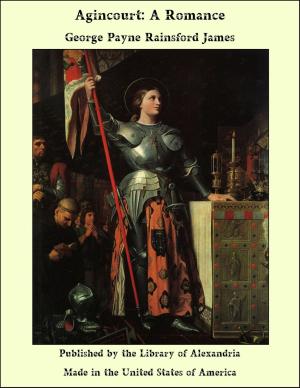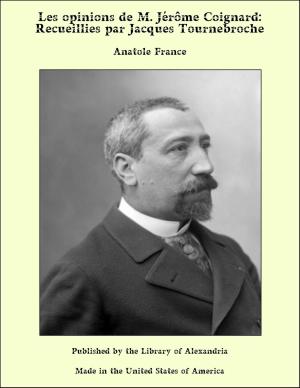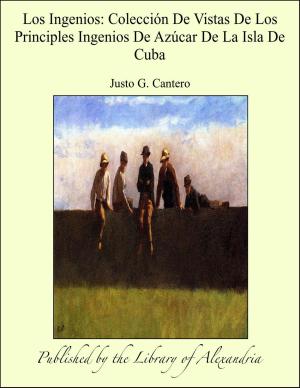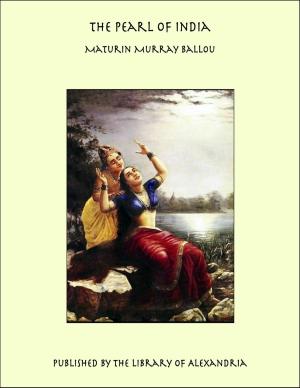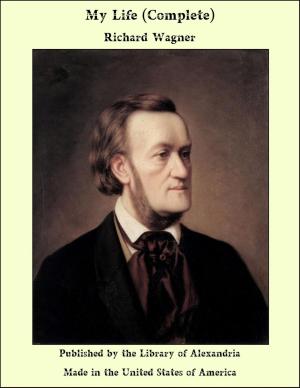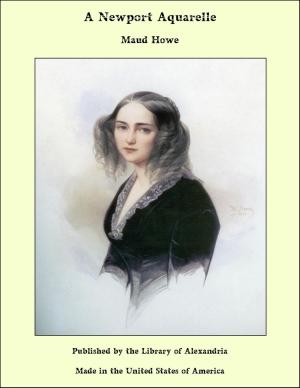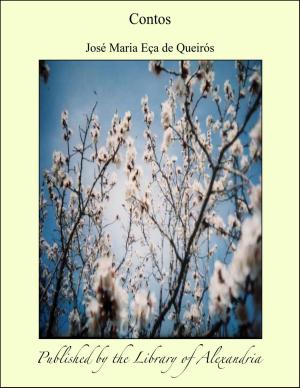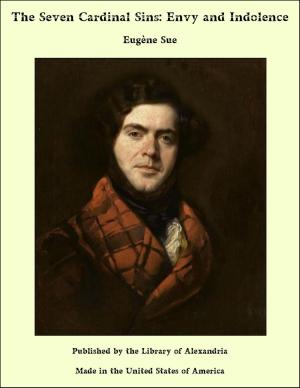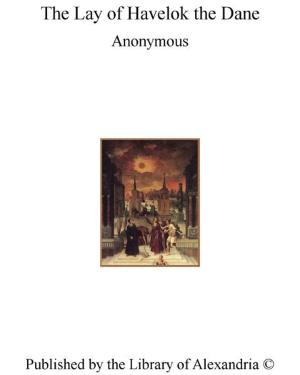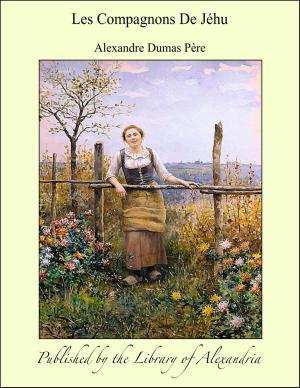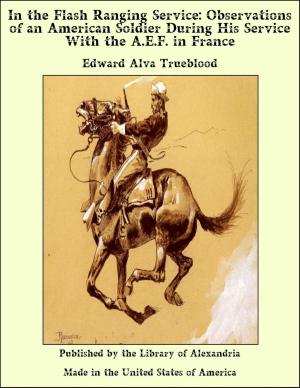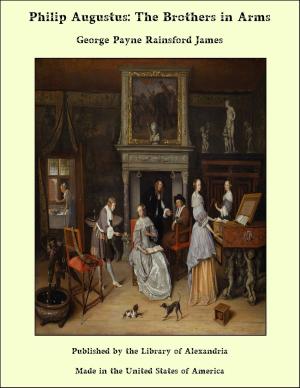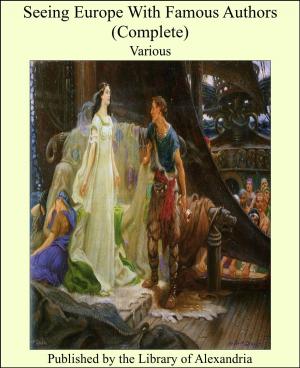Insula Sanctorum et Doctorum; Or Ireland's Ancient Schools and Scholars
Nonfiction, Religion & Spirituality, New Age, History, Fiction & Literature| Author: | John Healy | ISBN: | 9781465560506 |
| Publisher: | Library of Alexandria | Publication: | July 29, 2009 |
| Imprint: | Library of Alexandria | Language: | English |
| Author: | John Healy |
| ISBN: | 9781465560506 |
| Publisher: | Library of Alexandria |
| Publication: | July 29, 2009 |
| Imprint: | Library of Alexandria |
| Language: | English |
In the following pages it has been the author’s purpose to give a full and accurate, but at the same time, as he hopes, a popular account of the Schools and Scholars of Ancient Ireland. It is a subject about which much is talked, but little is known, and even that little is only to be found in volumes that are not easily accessible to the general reader. In the present work the history of the Schools and Scholars of Celtic Erin is traced from the time of St. Patrick down to the Anglo-Norman Invasion of Ireland. The first three centuries of this period is certainly the brightest page of what is, on the whole, the rather saddening, but not inglorious record, of our country’s history. It was not by any means a period altogether free from violence and crime, but it was certainly a time of comparative peace and security, during which the religious communities scattered over the island presented a more beautiful spectacle before men and angels, than anything seen in Christendom either before or since. It is an epoch, too, whose history can be studied with pleasure and profit, and in which Irishmen of all creeds and classes feel a legitimate pride. It has been questioned, indeed, if the Monastic Schools of this period were really so celebrated and so frequented by holy men, as justly to win for Ireland her ancient title of the Insula Sanctorum et Doctorum—the Island of Saints and Scholars. The author ventures to hope that the following pages will furnish, even to the most sceptical, conclusive evidence on this point. It has been his purpose to show not merely the extent, the variety, and the character of the studies, both sacred and profane, pursued in our Celtic Schools, but also the eminent sanctity of those learned men, whose names are found in all our domestic Martyrologies. Perhaps the most striking feature in their character, speaking generally, was their extraordinary love of solitude and mortification. They loved learning much, it is true; but they loved God and nature more. They knew nothing of what is now called civilization, and were altogether ignorant of urban life; but still they had a very keen perception of the grandeur and beauty of God’s universe. The voice of the storm and the strength of the sea, the majesty of lofty mountains and the glory of summer woods, spoke to their hearts even more eloquently than the voice of the preacher, or the writing on their parchments. The author has sought throughout to put all the information, which he could collect in reference to his subject, in a popular and attractive form. At the same time he has spared no pains to consult all the available authorities both ancient and modern; and he has always gone to the original sources, whenever it was possible to do so. He does not pretend to have avoided all mistakes in matters of fact, nor to be quite free from errors in matters of opinion. But he can say that he has honestly done his best to make the study of this portion of our Celtic history interesting and profitable to the general reader. And there is no doubt that the study of the holy and self-denying lives of our ancient Saints and Scholars will exercise a purifying and elevating influence on the minds of all, but more especially of the young; will teach them to raise their thoughts to higher things, and set less store on the paltry surroundings of their daily life
In the following pages it has been the author’s purpose to give a full and accurate, but at the same time, as he hopes, a popular account of the Schools and Scholars of Ancient Ireland. It is a subject about which much is talked, but little is known, and even that little is only to be found in volumes that are not easily accessible to the general reader. In the present work the history of the Schools and Scholars of Celtic Erin is traced from the time of St. Patrick down to the Anglo-Norman Invasion of Ireland. The first three centuries of this period is certainly the brightest page of what is, on the whole, the rather saddening, but not inglorious record, of our country’s history. It was not by any means a period altogether free from violence and crime, but it was certainly a time of comparative peace and security, during which the religious communities scattered over the island presented a more beautiful spectacle before men and angels, than anything seen in Christendom either before or since. It is an epoch, too, whose history can be studied with pleasure and profit, and in which Irishmen of all creeds and classes feel a legitimate pride. It has been questioned, indeed, if the Monastic Schools of this period were really so celebrated and so frequented by holy men, as justly to win for Ireland her ancient title of the Insula Sanctorum et Doctorum—the Island of Saints and Scholars. The author ventures to hope that the following pages will furnish, even to the most sceptical, conclusive evidence on this point. It has been his purpose to show not merely the extent, the variety, and the character of the studies, both sacred and profane, pursued in our Celtic Schools, but also the eminent sanctity of those learned men, whose names are found in all our domestic Martyrologies. Perhaps the most striking feature in their character, speaking generally, was their extraordinary love of solitude and mortification. They loved learning much, it is true; but they loved God and nature more. They knew nothing of what is now called civilization, and were altogether ignorant of urban life; but still they had a very keen perception of the grandeur and beauty of God’s universe. The voice of the storm and the strength of the sea, the majesty of lofty mountains and the glory of summer woods, spoke to their hearts even more eloquently than the voice of the preacher, or the writing on their parchments. The author has sought throughout to put all the information, which he could collect in reference to his subject, in a popular and attractive form. At the same time he has spared no pains to consult all the available authorities both ancient and modern; and he has always gone to the original sources, whenever it was possible to do so. He does not pretend to have avoided all mistakes in matters of fact, nor to be quite free from errors in matters of opinion. But he can say that he has honestly done his best to make the study of this portion of our Celtic history interesting and profitable to the general reader. And there is no doubt that the study of the holy and self-denying lives of our ancient Saints and Scholars will exercise a purifying and elevating influence on the minds of all, but more especially of the young; will teach them to raise their thoughts to higher things, and set less store on the paltry surroundings of their daily life

